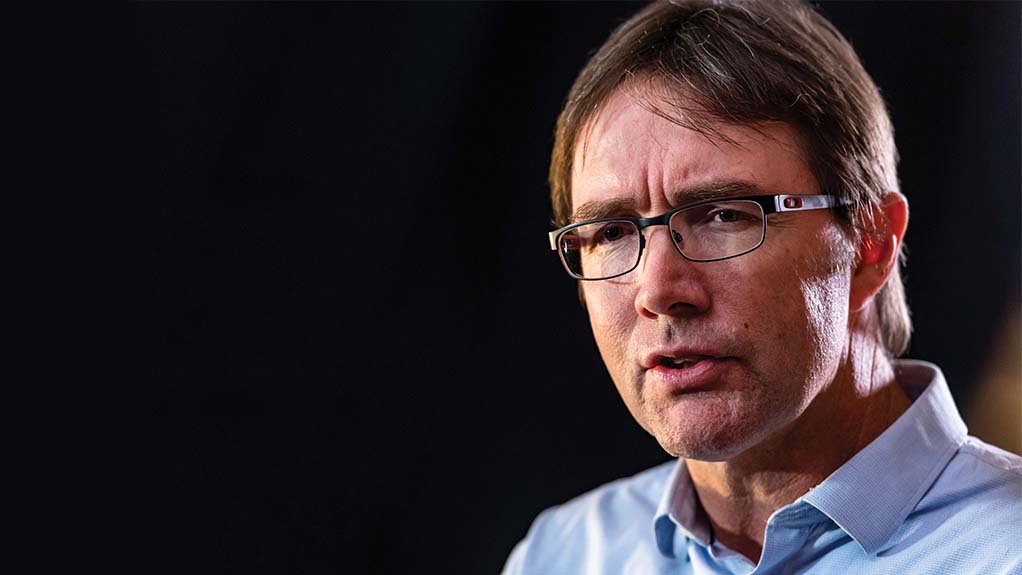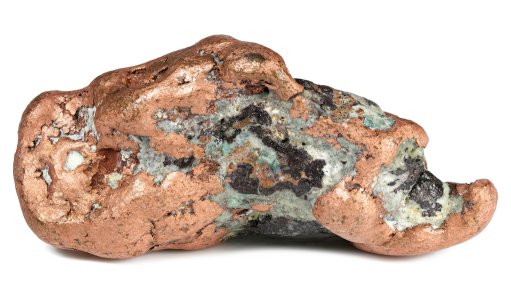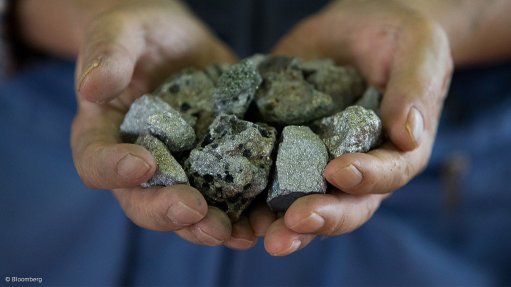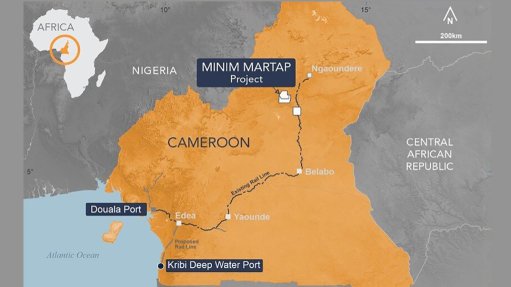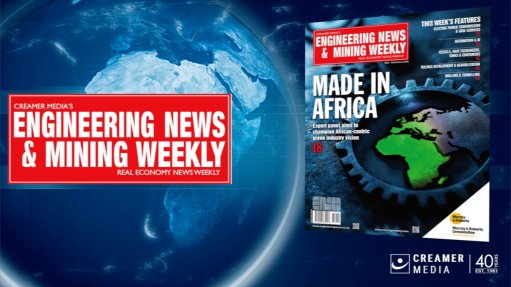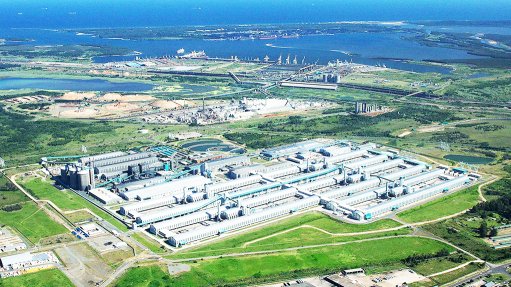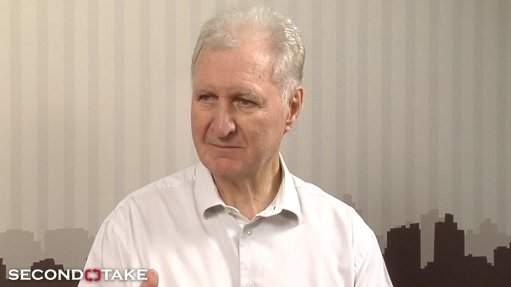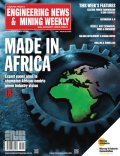New report to be released on the state of 4IR, ESG in the South African mining industry
The Minerals Council South Africa, in collaboration with accounting firm PwC and the Mandela Mining Precinct, will soon release its new 2022/23 report on the state of digitalisation, the Fourth Industrial Revolution (4IR) and environmental, social and governance (ESG) in South African mining.
“Digital transformation is an imperative for mining – a non-negotiable if you like – as it serves as the seamless thread through all of the mining value chain processes, and enhances safety and health, security, production and workforce and leadership capability,” Minerals Council CEO Roger Baxter said while presenting highlights from the report in Johannesburg on February 22.
He said the implementation of these processes needed to be done with care and responsibility, which formed the basis for the latest study, which had included ESG aspects of mining as a result.
The first of these yearly studies was undertaken in 2020, although it did not include ESG. Rather, it focused solely on key strategies for maturing companies’ modernisation and digitalisation programmes.
Many mining companies referenced the original report to either kick off or accelerate their digitalisation and 4IR preparedness journeys. The onset of Covid-19 also played a role in the industry embracing digitalisation and 4IR technologies at their operations.
The inclusion of ESG aspects into the latest study was done to bring the industry in line with what is expected of companies in a modern world, Baxter explained.
Target respondents for the survey were predominantly CEOs or nominated senior leaders from their companies. Organised labour representatives were also interviewed and then the study was anonymised.
“The aim was to search for a broad range of opinions to extrapolate the implications of digital transformation on South African mining and ESG – thereby formulating impact statements and addressing the ‘so-whats’,” Baxter pointed out.
More than 30 insights were extrapolated from the study, although these were summarised into ten.
“A striking difference from the previous study is how prolific and integrated all of these issues have become. We can no longer speak or think about these issues in silos – they are integrated, holistically connected and comprise systems of systems,” Baxter said.
The ten insights in the report offer a glimpse into the current state of the mining industry, he added.
The first insight highlights how mining CEOs and their executives are being more deliberate in their decision-making processes. The second insight emphasises how technology is being applied where it has the greatest measurable benefit, while the third insight acknowledges that the hunt for value requires cooperation and compromise. The fourth insight sheds light on how digital tools do not just measure but also contribute to the mining industry.
The fifth insight reflects on the importance of sustainability and how it has become one of the crown jewels of the industry. The sixth insight expresses confidence in the industry's ability to rise up to any challenge and highlights the tools that it has at its disposal to achieve success. The seventh insight draws attention to the importance of people and how the industry must fight globally for talent.
The eighth insight asks whether ESG is critical for business survival or just a tick-box exercise. The ninth insight recognises how regulations shape ESG, for better or for worse. Lastly, the tenth insight underscores how ESG drives long-term value and is a critical component of the mining industry's success.
“What is glaringly obvious though, is that our miners have distinctly moved on from pondering ‘the why’ in terms of digital transformation, to ‘the how’ and ‘the what’. This is encouraging and so mining is moving firmly away from a perceived notion that it is a laggard in adopting 4IR and digitalisation,” Baxter said.
He noted that, conversely, mining industry leaders were driving the digital transformation vision and, therefore, expected to enjoy the results in the next few years. These industry leaders were also very clear about their companies’ roles in meeting ESG expectations and, therefore, had “powerful and thought-provoking” insights to share and enact.
Baxter said the report indicated that South African mining industry leaders recognised the opportunity to leverage technology infrastructures, such as information and communications technology (ICT), to improve their ESG control systems, especially with the use of data across the entire mining value chain and its processes and disciplines.
“It also becomes clear that the move away from distinct point solutioning is increasingly becoming the preferred option. Use, reuse, optimise and reuse again is how one CEO framed it. And so, some miners emphasise the importance of data mining,” he said.
Baxter noted that modern integration required new approaches, new ways of thinking and out-of-the-box engineering, which meant that there was a demand for new skills to be enacted.
He said executives now expected more up-to-date expertise from their technical teams, ICT departments and ESG functions such as risk, governance, environmental and social.
“What applied and worked ten years ago no longer suffices to meet the goals of modern mining. The factors of uncertainty, complexity and plurality need to be managed differently, and so mining is learning from other industries,” Baxter explained.
He said there was significant opportunity to leverage digital technologies better for the purposes of ESG – a notion supported by organised labour – and that mining CEOs intuitively know and expect that data-flow and information-sharing will occur for the ESG functions by means of the digital systems.
Widespread exploration is occurring regarding the mechanics – which are the standards and reference architectures – of how this can be improved and materialised.
“Indications to date and from the feedback of our respondents point to the notion that digital transformation and ESG practices are paying off – qualitatively and quantitively. Improvements are being noted,” Baxter emphasised.
He added that mining companies were also increasingly seizing opportunities to solve problems that other entities, such as State-owned Eskom and Transnet, could not, with what he called a “we can wait no longer, we will get things done” attitude.
Baxter said CEOs and mining operations nationally were increasingly focused on sustainability and limiting environmental harm.
Baxter added that the report captured recommendations by CEOs – specifically that collaboration in the mining industry was critical for success. The report also states that the existing mechanisms that enable such collaboration need to be leveraged by willing stakeholders.
The Minerals Council’s board mandated the PwC Smart Mining Team and the Mandela Mining Precinct’s real-time information management systems programme to perform this study every two years.
The latest survey report will be available for download from the PwC website and will also be made available on the websites of the Minerals Council and Mandela Mining Precinct within the next few days.
“Our expectation is that this study and its results will have a profound effect and influence on how we mine metals and minerals in future,” Baxter said.
Comments
Press Office
Announcements
What's On
Subscribe to improve your user experience...
Option 1 (equivalent of R125 a month):
Receive a weekly copy of Creamer Media's Engineering News & Mining Weekly magazine
(print copy for those in South Africa and e-magazine for those outside of South Africa)
Receive daily email newsletters
Access to full search results
Access archive of magazine back copies
Access to Projects in Progress
Access to ONE Research Report of your choice in PDF format
Option 2 (equivalent of R375 a month):
All benefits from Option 1
PLUS
Access to Creamer Media's Research Channel Africa for ALL Research Reports, in PDF format, on various industrial and mining sectors
including Electricity; Water; Energy Transition; Hydrogen; Roads, Rail and Ports; Coal; Gold; Platinum; Battery Metals; etc.
Already a subscriber?
Forgotten your password?
Receive weekly copy of Creamer Media's Engineering News & Mining Weekly magazine (print copy for those in South Africa and e-magazine for those outside of South Africa)
➕
Recieve daily email newsletters
➕
Access to full search results
➕
Access archive of magazine back copies
➕
Access to Projects in Progress
➕
Access to ONE Research Report of your choice in PDF format
RESEARCH CHANNEL AFRICA
R4500 (equivalent of R375 a month)
SUBSCRIBEAll benefits from Option 1
➕
Access to Creamer Media's Research Channel Africa for ALL Research Reports on various industrial and mining sectors, in PDF format, including on:
Electricity
➕
Water
➕
Energy Transition
➕
Hydrogen
➕
Roads, Rail and Ports
➕
Coal
➕
Gold
➕
Platinum
➕
Battery Metals
➕
etc.
Receive all benefits from Option 1 or Option 2 delivered to numerous people at your company
➕
Multiple User names and Passwords for simultaneous log-ins
➕
Intranet integration access to all in your organisation



